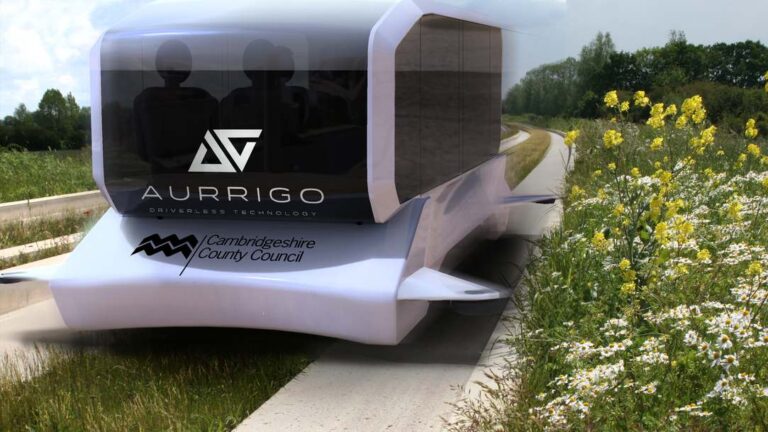Smart Cambridge and the Greater Cambridge Partnership are to receive £3.2 million of funding after a successful bid thanks to presenting innovative feasibility studies to improve Cambridge’s transport networks. This project was commissioned and funded by Greater Cambridge Partnership (GCP) and included working with the University of Cambridge.
Chair of the Greater Cambridge Partnership, Cllr Francis Burkitt, explains that: “One of the GCP’s core missions is to develop and bring cutting-edge transport technology to Greater Cambridge, within the scope of the Mayor and Combined Authority’s overall transport strategy and vision, so our region can lead the way in creating a set of 21st Century public transport options for our residents to use, and to help our businesses grow.
“Mid-sized self-driving shuttles running over relatively short distances could be a key part of that, especially as they could whizz back and forwards in the early mornings, late evenings, throughout the night and at weekends, when other forms of public transport are less active,” says Burkitt.
Funding was awarded by the Centre of Connected and Autonomous Vehicles (CCAV) and delivered by Innovate UK. The grant will allow the partnership to build and trial six 10-15-seater autonomous shuttles. The shuttles are to operate on the southern section of the existing guided busway as an out-of-hours service when regular buses are not running. The busway provides the opportunity to trial self-driving vehicles as it is segregated from general traffic and will allow the vehicles to run past major residential and employment sites.
The autonomous shuttles will be developed by Coventry-based engineering firm Aurrigo. Dr Richard Fairchild, director of autonomous mobility programmes at Aurrigo, commented: “We are really excited to have won this funding from CCAV enabling us to work with Cambridgeshire County Council, Smart Cambridge and the Greater Cambridge Partnership to bring autonomous vehicles to Cambridge, creating a service that will actually benefit residents, as well as showcasing the UK as leaders in the design and engineering of autonomous technology.”
The project will commence later this year and prototype vehicle testing is planned to begin the following summer in 2019. The project aims to have the first passengers carried in the summer of 2020. If the trials are successful the autonomous vehicles will be introduced elsewhere in Greater Cambridge.
“The first trial was last year,” says Burkitt, “and it’s very exciting that we can now move forward to further work on developing the shuttles. In time, I hope we can consider rolling them out elsewhere in the City and South Cambridgeshire, where the strategy supports that.”





